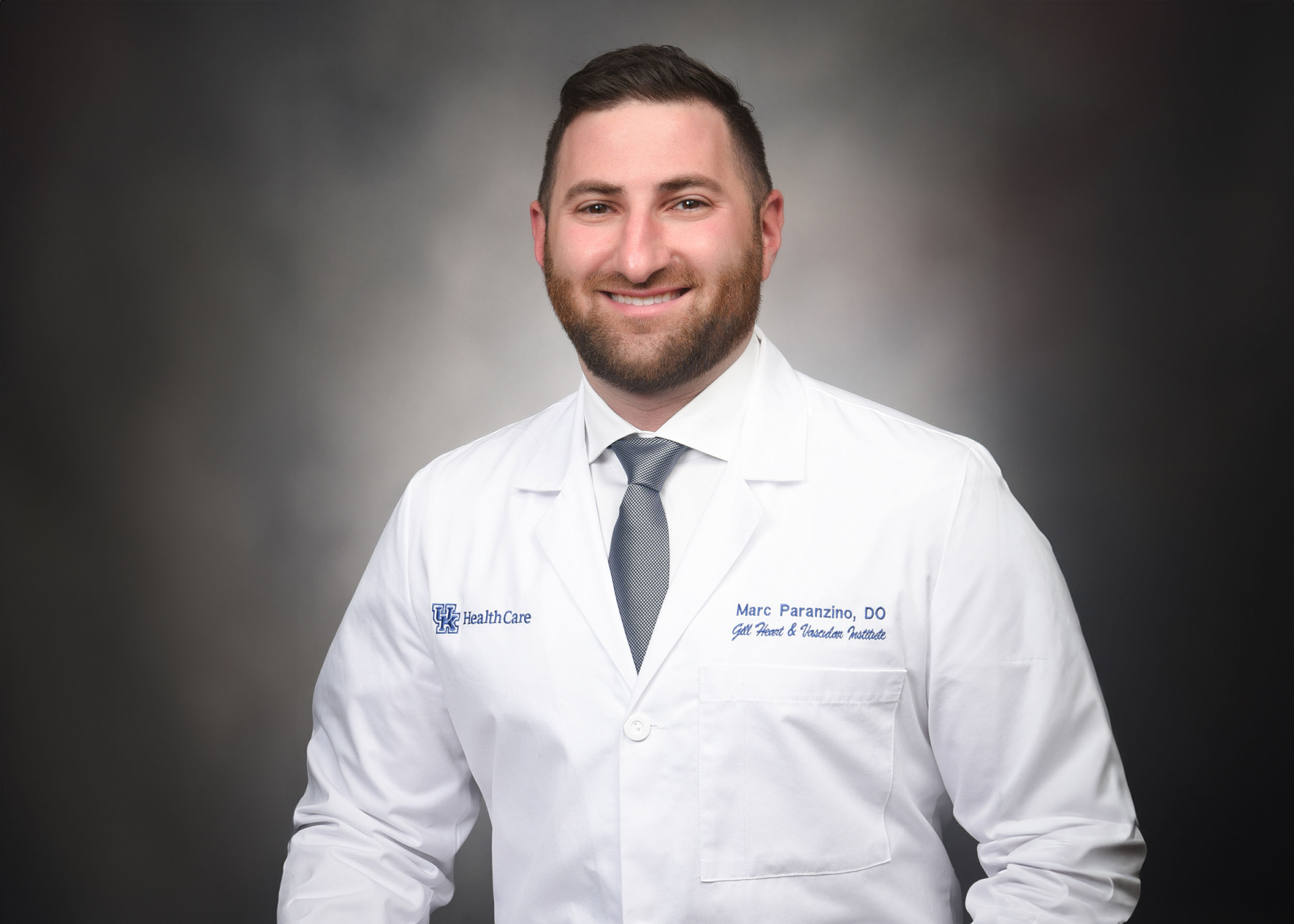UK HealthCast: The unique heart needs of athletes

UK HealthCast is a podcast series featuring interviews with UK HealthCare experts on a variety of health-related topics.
On this edition of UK HealthCast, Dr. Marc Paranzino, a sports cardiologist, discusses the cardiovascular system, the unique conditions under which athletes’ hearts operate, how their care differs from the general population, and why anyone who’s active can benefit from sports cardiology.
Read below for some key takeaways from Dr. Paranzino’s conversation.
What is sports cardiology?
Sports cardiology is essentially general cardiology applied to a specialized group: athletes and highly active individuals. While the basic principles of heart health are universal, the demands placed on an athlete's heart often differ from those of the general population. Understanding these nuances is crucial to providing the best possible care.
One of the most significant distinctions between general cardiology and sports cardiology is the need to distinguish between normal physiological changes due to training and actual heart disease. Athletes, especially those involved in endurance sports, often show changes in their heart structure and function — such as enlarged heart chambers and lower resting heart rates — that may be mistaken for abnormalities in traditional cardiology assessments. It’s essential for sports cardiologists like Dr. Paranzino to recognize these adaptations as normal for athletes and not confuse them with potential cardiac problems.
This specialized knowledge becomes especially important when evaluating athletes for conditions that could put them at risk for sudden cardiac events during competition. Dr. Paranzino notes that the field of sports cardiology evolved in response to tragic cases of sudden cardiac death among seemingly healthy athletes, such as basketball star Hank Gathers and legendary player “Pistol” Pete Maravich. These high-profile cases spurred the medical community to investigate the unique cardiovascular risks faced by athletes, ultimately leading to the establishment of dedicated sports cardiology programs.
Athletes and cardiovascular risk
One of the most common misconceptions that Dr. Paranzino encounters is the belief that fit and active individuals are immune to heart disease. While being physically active is one of the best ways to reduce the risk of heart disease, it does not make someone invincible. Athletes can still develop heart conditions, either due to genetic predisposition, age or other risk factors.
Dr. Paranzino emphasizes the importance of recognizing warning signs, such as chest pain or exercise intolerance, and seeking proper evaluation. He encourages athletes, regardless of their level of competition, to consider seeing a sports cardiologist if they have a family history of heart disease or experience symptoms during exercise. Sports cardiologists are trained to differentiate between exercise-induced changes and actual cardiac conditions, ensuring that athletes can train and compete safely.
Who should see a sports cardiologist?
While many people assume that sports cardiology is only for elite athletes, Dr. Paranzino stresses that care is for anyone who is active or wishes to become more active. Whether you're a weekend warrior running marathons, a high school athlete or a police officer who needs to stay fit for work, sports cardiology can offer specialized care tailored to your needs.
UK HealthCare's sports cardiology team sees a wide range of patients, from high-level collegiate athletes to individuals beginning an exercise regimen for the first time. Tactical athletes, such as military personnel, police officers, firefighters and EMTs, also benefit from the program, as their physical fitness is critical to their job performance.
Patients come to the sports cardiology program through various avenues. Some are referred by sports medicine providers or trainers after abnormal test results, while others seek care due to family history or symptoms like chest pain. Regardless of how they arrive, the goal is the same: to help active individuals maintain heart health and continue their activities safely.
A unique journey to sports cardiology
Dr. Paranzino’s path to sports cardiology was anything but conventional. He originally pursued a degree in marine science, envisioning a career focused on research and scuba diving in tropical waters. However, he felt unfulfilled and decided to attend medical school. Around the same time, Dr. Paranzino discovered his passion for endurance sports, particularly running, which further piqued his interest in the cardiovascular system.
This personal connection to athletics, coupled with his medical training, sparked his fascination with how the heart adapts to physical stress. He came to understand the complex relationship between exercise and heart health, and how the needs of cardiological athletes compare to and differ from the general population.
Staying heart healthy
Dr. Paranzino’s number one piece of advice for active individuals is simple: move. The American Heart Association recommends at least 150 minutes of moderate-intensity exercise per week to reduce the risk of heart disease, stroke, high blood pressure and diabetes.
Beyond the physical benefits, Dr. Paranzino believes that staying active is one of the best things you can do for both your mind and body. He encourages everyone to find an activity they enjoy and make it a part of their lifestyle — whether it’s running, cycling, or even dancing.
Ultimately, sports cardiology isn’t just about elite athletes. It’s about ensuring that anyone who wants to stay active can do so with confidence, knowing their heart is in good hands. If you're active — or want to be — and have concerns about your heart health, UK HealthCare is here to help.





